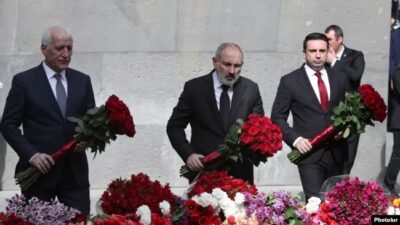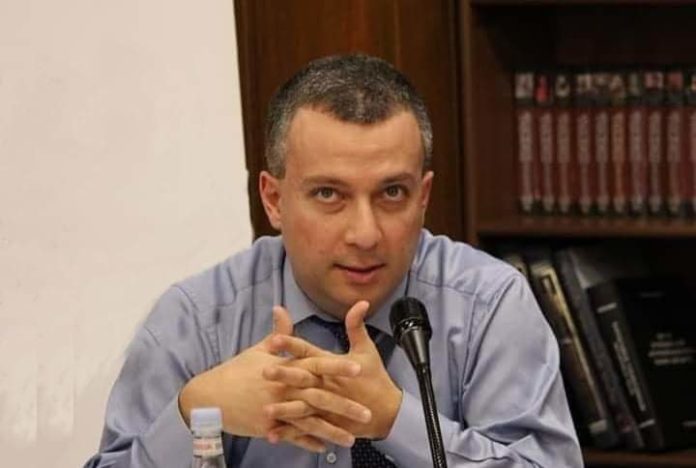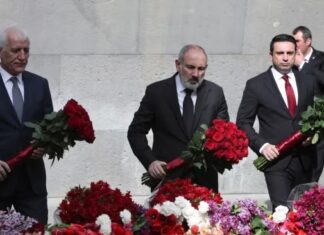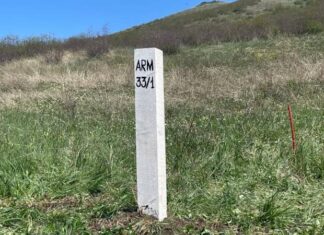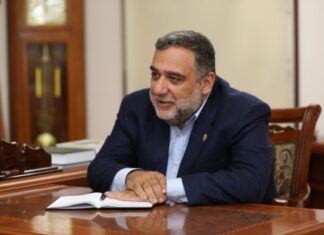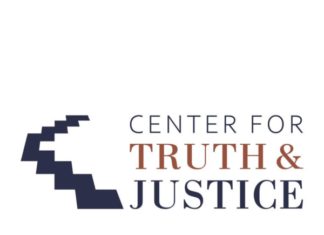In recent months, Armenia and Azerbaijan engaged in intensive negotiations to sign a peace agreement. Meetings took place in Brussels, Sochi and Washington. Yerevan and Baku signed statements in Prague on October 6 and Sochi on October 31, 2022. The US, which jumped into the negotiations in September 2022, pushed forward an idea to sign a peace agreement by the end of 2022. It seemed that Armenia and Azerbaijan were close to overcoming their differences and paving the way for lasting peace and stability in the region. However, despite all these activities, the experts, who are familiar with the negotiation process, clearly understand that several significant obstacles remain in the way of the agreement.
The main point of contention is the future of Nagorno Karabakh. Azerbaijan continues to claim that there is no Nagorno Karabakh, and that Baku destroyed it during the 2020 Nagorno Karabakh war. Azerbaijan accepts only the existence of an “Armenian minority in Azerbaijan,” which should have no special status and no special protection. President Aliyev stated that those Armenians who did not want to live as ordinary Azerbaijani citizens should leave Karabakh.
This approach is unacceptable for Armenia and the Nagorno Karabakh (Artsakh) Republic. The current Armenian government dropped the demand for the recognition of Nagorno Karabakh independence and stopped speaking about Nagorno Karabakh’s status and its people’s right to self-determination. The Armenian government pushes forward the narrative of providing rights and security for Nagorno Karabakh Armenians. These steps are very significant concessions by the Armenian side.
However, the Armenian government emphasizes the necessity for talk between Azerbaijan and Nagorno Karabakh with international involvement and argues that relevant international mechanisms should be created for that purpose. The Nagorno Karabakh Republic rejects any possibility of being under Azerbaijani jurisdiction. Its government is ready to speak with Azerbaijan, but with the mandatory involvement of the Organization for Security and Cooperation in Europe (OSCE) Minsk Group co-chair states; these talks should be discussions between two sides of the conflict and not between the Azerbaijani government and the Armenian community of Azerbaijan.
Probably mediators seek to overcome this deadlock, but all understand that the task is very challenging, and there is no clear path forward. Meanwhile, Azerbaijan is signaling to Armenia and the international community that Baku will not wait for years to reach its goal through negotiations. Azerbaijan’s position is very straightforward — Armenia should accept all Azerbaijani demands and sign a relevant agreement. Otherwise, Azerbaijan will launch another large-scale war, defeat Armenia militarily and force it to accept its demands.
Azerbaijani logic is clear — under all circumstances, Armenia must accept Azerbaijani demands and sign a de facto “capitulation.” It is up to Armenia either to do it now or to sign such an agreement after a new “44-day war.” To show that Baku is not bluffing while speaking about a new war, it launched a large-scale military attack against Armenia on September 13-14, 2022, shelling bordering Armenian cities and villages and encroaching deep inside Armenian territory.
